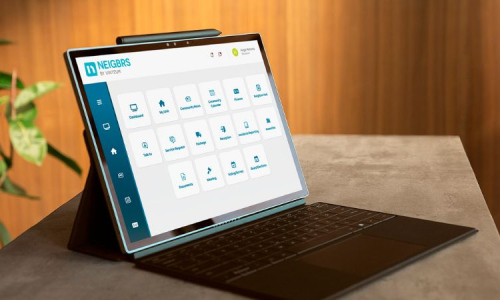Maintenance in condos and HOAs is a very important topic for board members and residents. Here we’ll go through what maintenance is, what the association covers, and what the owner needs to do. We’ll also talk about insurance and how to organize maintenance requests.
What’s maintenance?
Let’s start with a simple question, what is maintenance? Maintenance is preserving a community or home by doing repairs or checks. These could be buildings (such as the roof) or equipment (like elevators) or common areas (eg the pool).
Condo & HOA Maintenance
Maintenance in homeowners’ associations (HOAs) and in condo associations is similar. However, it’s not identical because the layout of the two is different.
What the association covers
If you want to know exactly what maintenance your condo or HOA covers, then you should check your Declaration of Covenants, Conditions, and Restrictions (CC&Rs). These are the foundation of your association’s rules and regulations so they should have detailed information.
In general, the association is responsible for all maintenance in common areas.
- In a single home community, that means common areas and amenities (such as the pool, or tennis courts).
- If you’re in a townhome community, then it might also include the roof if it’s shared.
- In a condominium building then it would include the lobby, elevators, the roof, and the building’s exterior.
The only exception to this rule is if an owner or their guest causes any damage to common property. Then, the association will typically fix it and bill the owner for the costs.
Community associations pay for all upkeep with your dues, which is why they’re so important.

If your COA or HOA isn’t maintaining the common areas properly, then you should check the CC&Rs to see exactly what they should be doing. They should also state what a homeowner can do about the problem. From there, you need to research why the problem is occurring. It may be the board not doing their job or it might be a bad service provider. After that, you can raise the issue at a meeting. The board should work to fix the issue. If they don’t, you can create a petition to remove the difficult board member(s) or vote them out at the next election. You may be able to sue them, but it’s not an easy process.
What the owner covers
If it’s in your unit or lot, then it’s your responsibility to maintain it to the standards laid out in the CC&Rs.
In a condo, the owner typically has to do the upkeep of the floors, ceilings, and walls (including the paint) and everything inside those limits.
If you own a lot with a single home, then your maintenance will extend to the land around your home since that is your property.

If you live in a condo, and the plumbing needs fixing, that is normally up to the owner. Unless you can prove that the condo association (COA) was negligent and caused the issue.
If your unit or home isn’t up to the standards laid out in the CC&Rs, then the association can send you a warning, or a fine if you don’t fix the problem. Finally, they can go to court to get permission to do the maintenance themselves and send you the bill. That’s why it’s so important to know what you’re agreeing to when you buy a lot, house, or unit in a community association.
Insurance
The HOA or condo will have insurance on the common areas to protect them from large bills on unexpected maintenance, after a disaster for example. In most states, it’s obligatory for HOAs and Condos to have insurance. However, the board needs to fine-tune their policy to check that it does meet their needs and is market price.
However, you as the owner need your own insurance for your home and possessions. The association’s insurance will not cover your property. Again, if you want to check if this applies to your condo or HOA, check your CC&Rs.
Dealing with maintenance requests
It can be overwhelming for the board to deal with maintenance issues and requests that residents submit. Using software for HOAs and Condos you can deal with them with more ease and transparency. The software will track the requests from the instant that they’re submitted. They can be automatically routed to the right person, this saves the residents time as they don’t know have to know who is in charge. Then, that person can get in touch with the resident to ask for more details or let them know what’s going on. All of this is in one single feature, meaning that you have a centralized location for all work orders.
Using software that includes this functionality provides accountability and transparency for the board and residents. At Vinteum we provide all this and more to community associations all over North America. Book your free demo to find out more about how we can help you.





